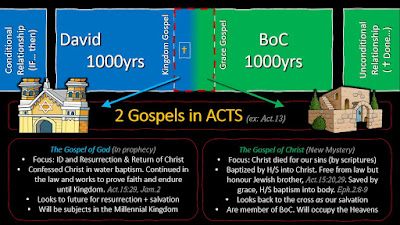How does the concept of Predestination and Freewill work?
When Paul writes in Ephesians 1:11, “In whom also we have obtained an inheritance, being predestinated according to the purpose of him who worketh all things after the counsel of his own will”, he is not teaching that God predestined who would believe, but rather what He determined beforehand for all who are in Christ. The context of Ephesians 1 is corporate, describing the blessings believers share “in Christ.” Predestination here refers to the inheritance, adoption, and conformity to Christ’s image that God has already planned for those who believe the gospel (1 Corinthians 15:3-4). In other words, predestination is about the destiny of the saved, not the selection of the saved.
This distinction becomes clearer when we consider God’s foreknowledge. Romans 8:29 says, “For whom he did foreknow, he also did predestinate to be conformed to the image of his Son…” Calvinism teaches that God unconditionally elects some to salvation and passes over others, but Scripture emphasizes foreknowledge rather than forced choice. God, being all-knowing, knew before creation who would believe the gospel, but His foreknowledge does not mean He overrode their free will. Foreknowledge simply means God knew beforehand; predestination means He determined the destiny of those who believe; and election refers to God choosing the body—the church, “in Christ”—as the vessel of blessing (Ephesians 1:4, “According as he hath chosen us in him before the foundation of the world…”).
Romans 8:29-30 lays out the golden chain of salvation: foreknow → predestinate → call → justify → glorify. Notice that the predestination is to be conformed to the image of His Son. This is not about God deciding who will believe, but about what happens to those who do believe. Once a person trusts the gospel, their destiny is fixed: they are called, justified, and ultimately glorified. This passage is about the security of salvation, not the denial of free will.





